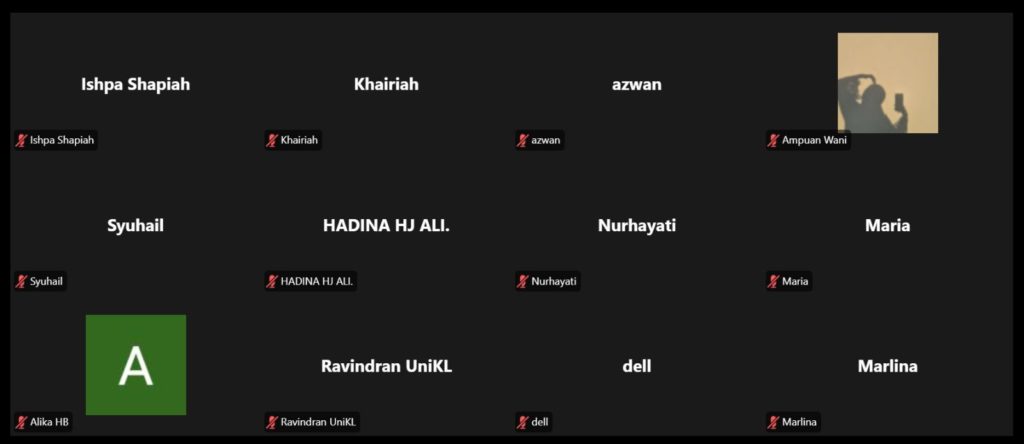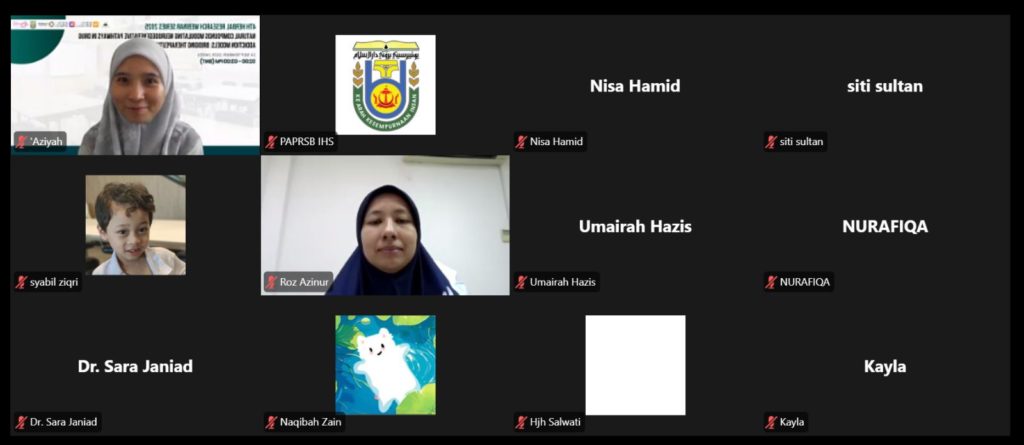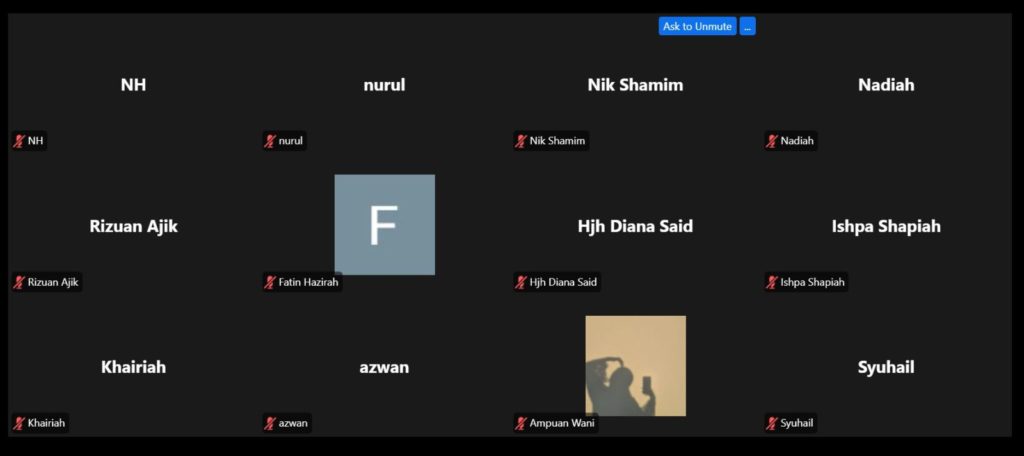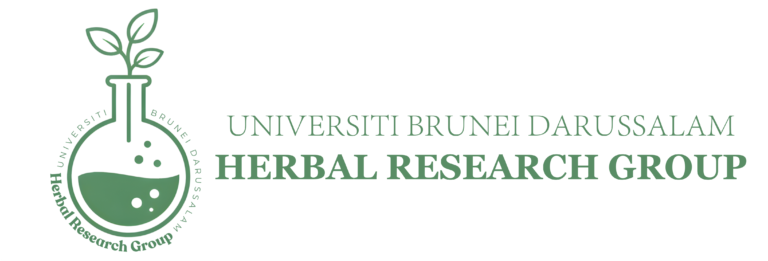The 4th session of the Herbal Research Webinar Series 2025 was held on 24th September 2025, featuring Ts. Dr. Mohammad Halim bin Mohamad Shariff, a neuropharmacology researcher specializing in natural products with neuroprotective potential. The webinar, focusing on “Natural Compounds Modulating Neurodegenerative Pathways in Drug Addiction Models: Bridging Therapeutic Mechanisms”, welcomed an estimated 60 participants from various faculties and departments of Universiti Brunei Darussalam (UBD), Institute of Brunei Technical Education (IBTE), Universiti Teknologi Brunei (UTB), Universiti Teknologi MARA (UiTM), Universiti Malaysia Terengganu (UMT), Universiti Kuala Lumpur (UniKL) Royal College of Medicine, Bio Ventures Company United Pharma Sdn Bhd as well as Raja Isteri Pengiran Anak Saleha (RIPAS) Hospital. The session explored how natural compounds may offer therapeutic benefits for drug addiction, a condition recognised as a chronic relapsing brain disease rather than merely a social issue.
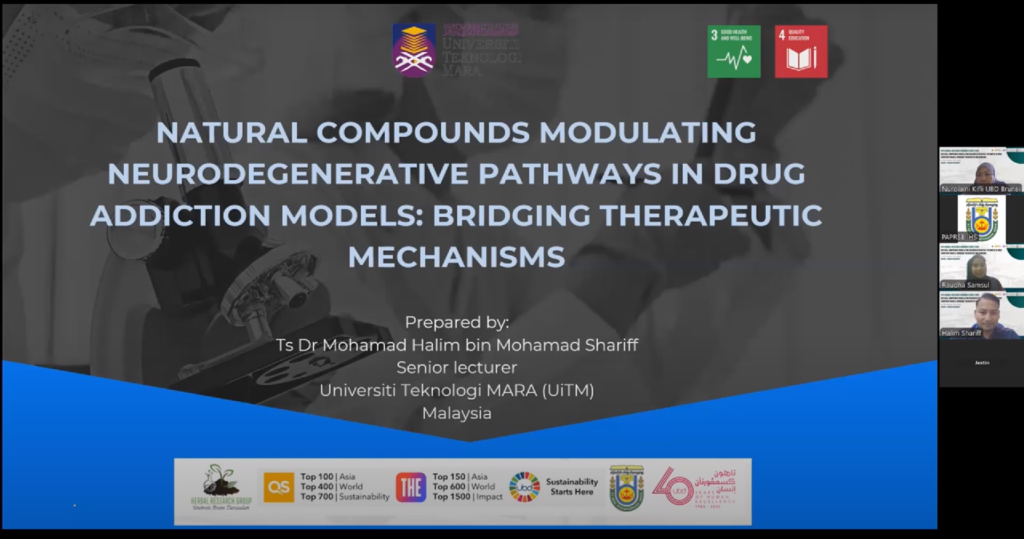
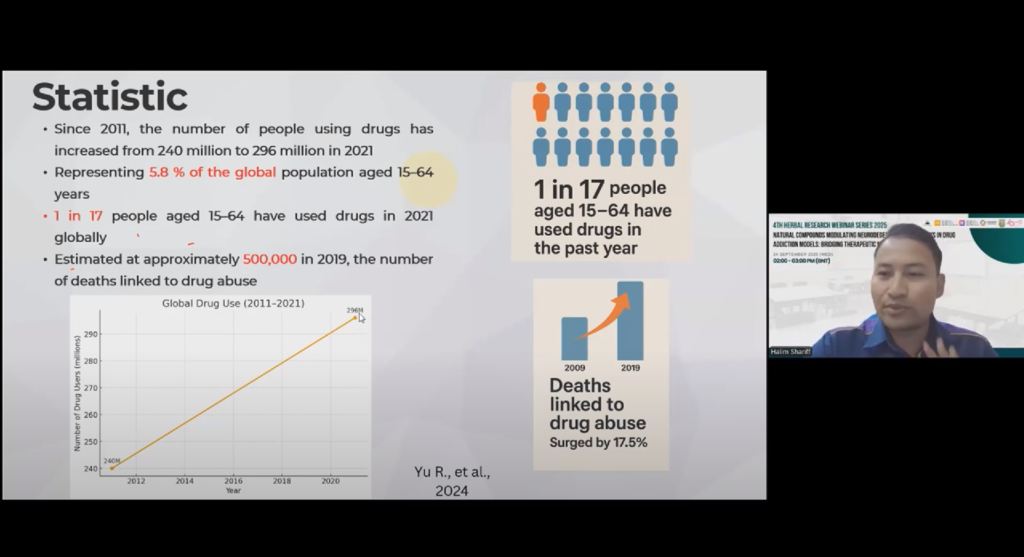
Dr. Halim began by outlining the global and regional statistics of drug addiction, emphasising its alarming rise, including cases among younger populations in Malaysia and Brunei. He explained how addictive substances disrupt the brain’s reward circuitry—notably the dopaminergic system—affecting regions such as the hypothalamus, ventral tegmental area (VTA), and prefrontal cortex. This dysregulation leads to compulsive drug-seeking behaviour and impaired decision-making. Withdrawal symptoms such as anxiety, insomnia, and irritability make cessation difficult, contributing to relapse cycles.

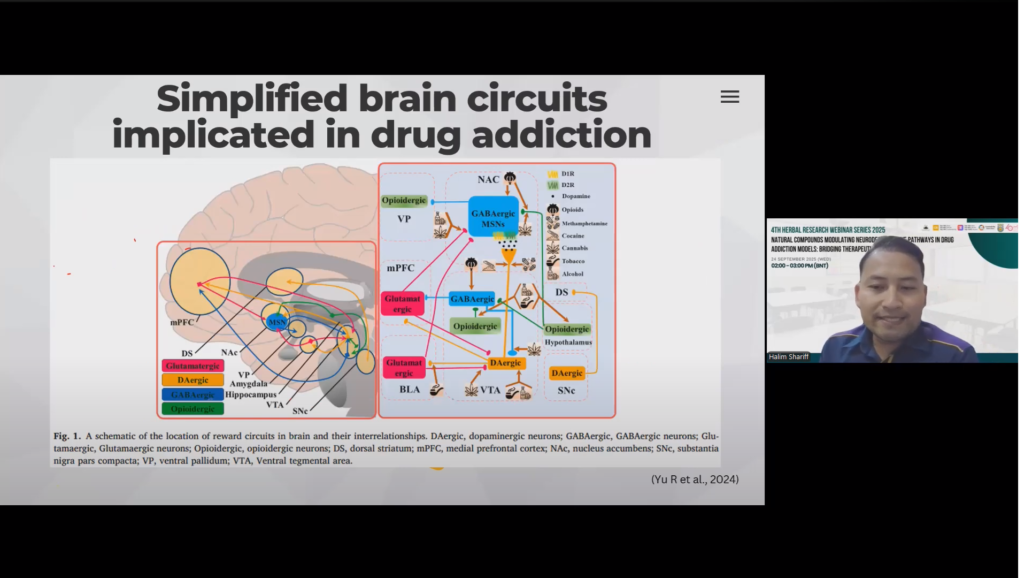
The talk then addressed how neuroinflammation and oxidative stress play central roles in the neurodegeneration associated with addiction. Dr. Halim highlighted promising natural compounds—particularly curcumin (from turmeric) and thymoquinone (from Nigella sativa)—that exhibit anti-inflammatory and antioxidant properties capable of mitigating brain damage and withdrawal symptoms in preclinical (animal) models. Experimental findings showed reduced inflammatory cytokines (TNF-α, IL-6), lower microglial activation, and improved antioxidant enzyme levels (SOD, GSH) following treatment with these compounds.

Dr. Halim also reviewed limited clinical studies investigating natural compounds like curcumin, mitragynine (from Mitragyna speciosa), crocin (from saffron), and ibogaine. While some showed benefits in reducing withdrawal effects and improving mood, he stressed that clinical evidence remains scarce, necessitating more robust trials.


He concluded by presenting his team’s prototype herbal formulation “Detache”, an oral spray developed from several plant extracts to help reduce opiate withdrawal symptoms. The product, created in collaboration with Malaysia’s National Anti-Drug Agency (AADK), has won multiple research awards and received a patent. Plans are underway for toxicity testing and commercialization through industry partnerships and government grants.
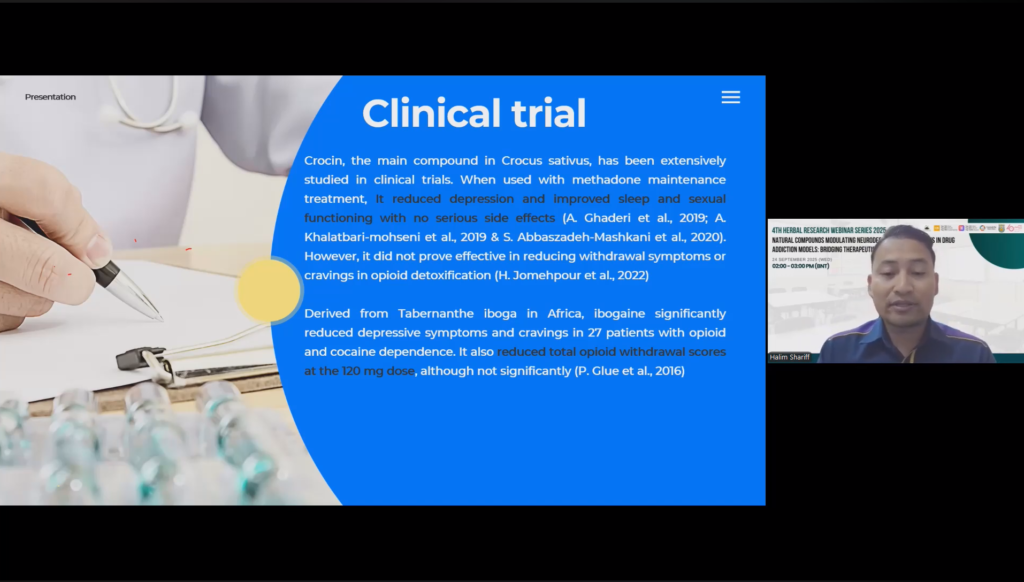

During the Q&A, participants discussed challenges in translating preclinical findings to human studies, the need for large-scale compound production, and the regulatory hurdles of clinical trials involving vulnerable populations. Dr. Halim emphasized the importance of commercializing research outcomes rather than limiting them to publications and encouraged cross-institutional collaborations in this field.
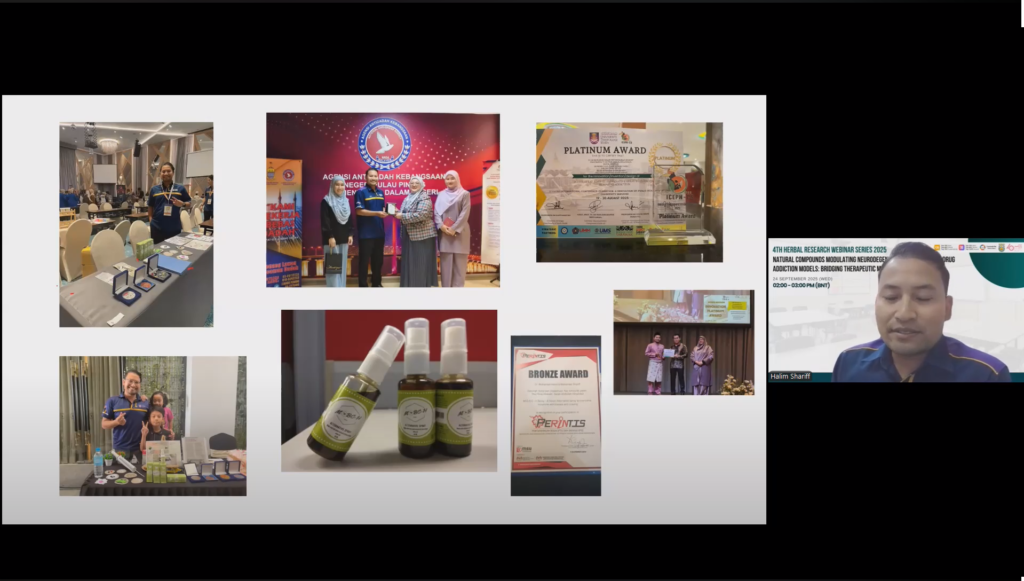
The session concluded with appreciation from the organizers and participants for the insightful presentation, which broadened understanding of how herbal medicine can address neurodegenerative and addiction-related disorders through scientific and translational research.
